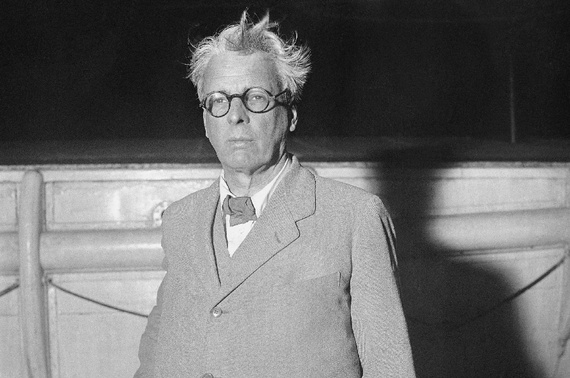The Deathbed Confessions of William Butler Yeats
When the poet died 75 years ago, three of his most brutal poems were in the current issue of The Atlantic.
http://www.theatlantic.com/entertainment/archive/2014/01/the-deathbed-confessions-of-william-butler-yeats/283392/
But there was no gentle beauty in the three poems by Yeats that appeared in The Atlantic in January 1939, the month the poet died. All of them are brutal pieces of deathbed reckoning. In “Man and the Echo,” the poet stands in front of a blank cliff face, racked by guilt over his role in the 1916 Easter Rising:
I lie awake night after night
And never get the answers right.
Did that play of mine send out
Certain men the English shot?
Did words of mine put too great strain
On that woman’s reeling brain?
Could my spoken words have checked
That whereby a house was wrecked?
And all seems evil until I
Sleepless would lay down and die.
And never get the answers right.
Did that play of mine send out
Certain men the English shot?
Did words of mine put too great strain
On that woman’s reeling brain?
Could my spoken words have checked
That whereby a house was wrecked?
And all seems evil until I
Sleepless would lay down and die.
In “The Circus Animal’s Desertion,” the poet mocks his entire career as a writer. “My circus animals were all on show,” he writes, bitterly describing how he tried and failed to live up to his purest visions. By the end, he’s lying in a garbage pit filled with broken, hideous things: “Now that my ladder's gone, / I must lie down where all the ladders start / In the foul rag and bone shop of the heart.”
And in “Politics,” Yeats presents himself as a pathetic old man, lusting in vain after a younger woman. This wasn’t far from the truth: Yeats spent his last decade carrying on with women half his age, and even had a vasectomy-like operation to improve his sexual “vigor.” (“When you are dead, people will talk about your love affairs,” wrote Yeats’s much-younger wife, George, in a letter to her husband, “but I shall say nothing, for I will remember how proud you were.”)
All these years later, the three poems are still deeply unsettling. After all, Yeats was a Nobel Prizewinner, an Irish senator, and a cofounder of his country’s national theater. If a man like that could look back on a lifetime of accomplishments and chalk them up to empty vanity, what hope is there for everyone else?
At the same time, there’s something mesmerizing about watching a great man ripping his own ego to shreds. Yeats was never fully at home in the material world. His poems are filled with references to hidden things: the fairies, the Druids, the “far-off, most secret, and inviolate Rose.” Just before he died, Yeats was especially taken with the Indian philosophy of Vedanta, which teaches that the whole universe is an illusion. In a 1935 essay, introducing a translation of the Mandukya Upanishad, Yeats explained the Vedantic vision of reality:
Whereas we are fragmentary, forgetting, remembering, sleeping, waking, spread out into past, present, future, permitting to our leg, to our finger, to our intestines, partly or completely separate consciousnesses, it is the “unbroken consciousness of the Self,” the Self that never sleeps, that is never divided, but even when our thought transforms it, it is still the same.
At the end of his life, Yeats seemed to be loosening his grip on that small, fragmentary self. The three Atlantic poems show him shedding the very last vestiges of his pride and dignity—his literary greatness, his sexual magnetism—everything that made him William Butler Yeats. As W.H. Auden put it, after his friend and mentor was buried in the ground: “Let the Irish vessel lie / Emptied of its poetry.”
沒有留言:
張貼留言